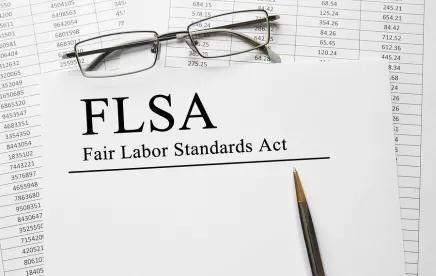For decades, most federal courts have held the view that private settlements of Fair Labor Standards Act (FLSA) claims are unenforceable unless they are approved by the Department of Labor or a court. However, as we have reported in prior posts, some federal courts have recently begun to challenge this long-held view and have taken a more flexible approach that treats FLSA settlements no differently than settlements or releases involving other employment law claims. In the recent decision of Stuntz v. Lion Elastomers, L.L.C., the Fifth Circuit Court of Appeals continued that trend and held that a union’s private settlement of FLSA claims on behalf of bargaining unit employees precludes individual bargaining unit employees from later bringing their own FLSA claims.
The employer in Stuntz allowed bargaining unit employees to come into work early to shower, don and doff equipment, and conduct other pre-shift tasks. The bargaining unit employees were not paid for this “off-the-clock” time, and the union that represented the employees filed a grievance claiming that the time was compensable. Ultimately, the employer and the union agreed to a settlement of the grievance, which resulted in backpay to the employees at issue.
One of the bargaining unit members later filed a proposed FLSA collective action alleging that the employer failed to fully compensate the putative collective members for their off-the-clock-work. The trial court granted the employer’s motion for summary judgment and dismissed the plaintiff’s claims.
The Fifth Circuit affirmed the trial court’s decision and held that the settlement between the employer and the union was a valid resolution of the bargaining unit members’ FLSA claims that, in turn, prevented the bargaining unit members from pursuing their own claims in court. The Court focused on the fact that, because the bargaining unit members received backpay, their FLSA rights were “not waived, but instead, validated through a settlement of bona fide dispute.” The fact that the individual bargaining union members did not personally agree to or sign the settlement agreement was of no consequence because, under the collective bargaining agreement, the union had the authority to represent the bargaining unit employees and to pursue and negotiate a resolution of their claims through the agreement’s grievance procedure.
The Fifth Circuit’s decision provides certainty to unionized employers that labor grievance settlements involving FLSA issues are an effective mechanism for settling FLSA disputes. Additionally, when considered in the context of other recent federal court decisions enforcing private FLSA settlement agreements, the Fifth Circuit’s decision will likely lead other circuit and district courts to consider taking a more flexible approach to evaluating the enforceability of private FLSA settlement agreements.





 />i
/>i

